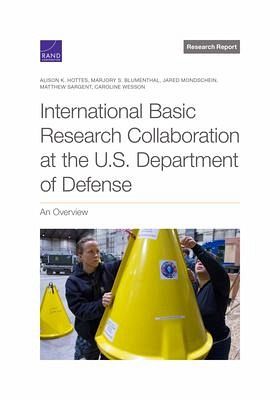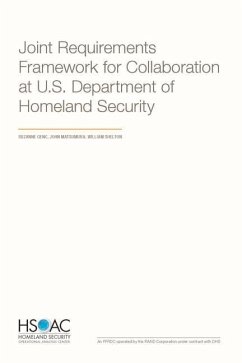
International Basic Research Collaboration at the U.S. Department of Defense
An Overview
Versandkostenfrei!
Versandfertig in über 4 Wochen
31,99 €
inkl. MwSt.

PAYBACK Punkte
16 °P sammeln!
In response to concerns about the research strength and practices of strategic competitors, the Basic Research Office within the Office of the Under Secretary of Defense for Research and Engineering asked the RAND National Defense Research Institute to study how the U.S. Department of Defense (DoD) approaches international basic research collaboration (IBRC) and formulate suggestions for DoD to improve how it uses IBRC. Benefits of IBRC include reducing technological surprise, leveraging investments of partners and allies, accessing diverse resources, and integrating international scientific t...
In response to concerns about the research strength and practices of strategic competitors, the Basic Research Office within the Office of the Under Secretary of Defense for Research and Engineering asked the RAND National Defense Research Institute to study how the U.S. Department of Defense (DoD) approaches international basic research collaboration (IBRC) and formulate suggestions for DoD to improve how it uses IBRC. Benefits of IBRC include reducing technological surprise, leveraging investments of partners and allies, accessing diverse resources, and integrating international scientific thought leaders into DoD networks. Although strategic considerations add to or detract from the scientific benefits for some collaborations, not participating in IBRC would carry costs in the form of lost opportunities. Suggestions include (1) providing knowledge management tools for DoD personnel whose IBRC responsibilities would benefit from having a more comprehensive picture of collaboration opportunities and considerations, (2) improving guidance to reduce instances of DoD researchers unnecessarily choosing not to work with the best partners, (3) considering ways to streamline IBRC application and approval processes, (4) analyzing whether the size and number of grants that DoD awards to foreign researchers is sufficient for DoD to meet its goal of being the partner of choice, and (5) assembling a fuller picture of DoD's IBRC efforts and processes.












